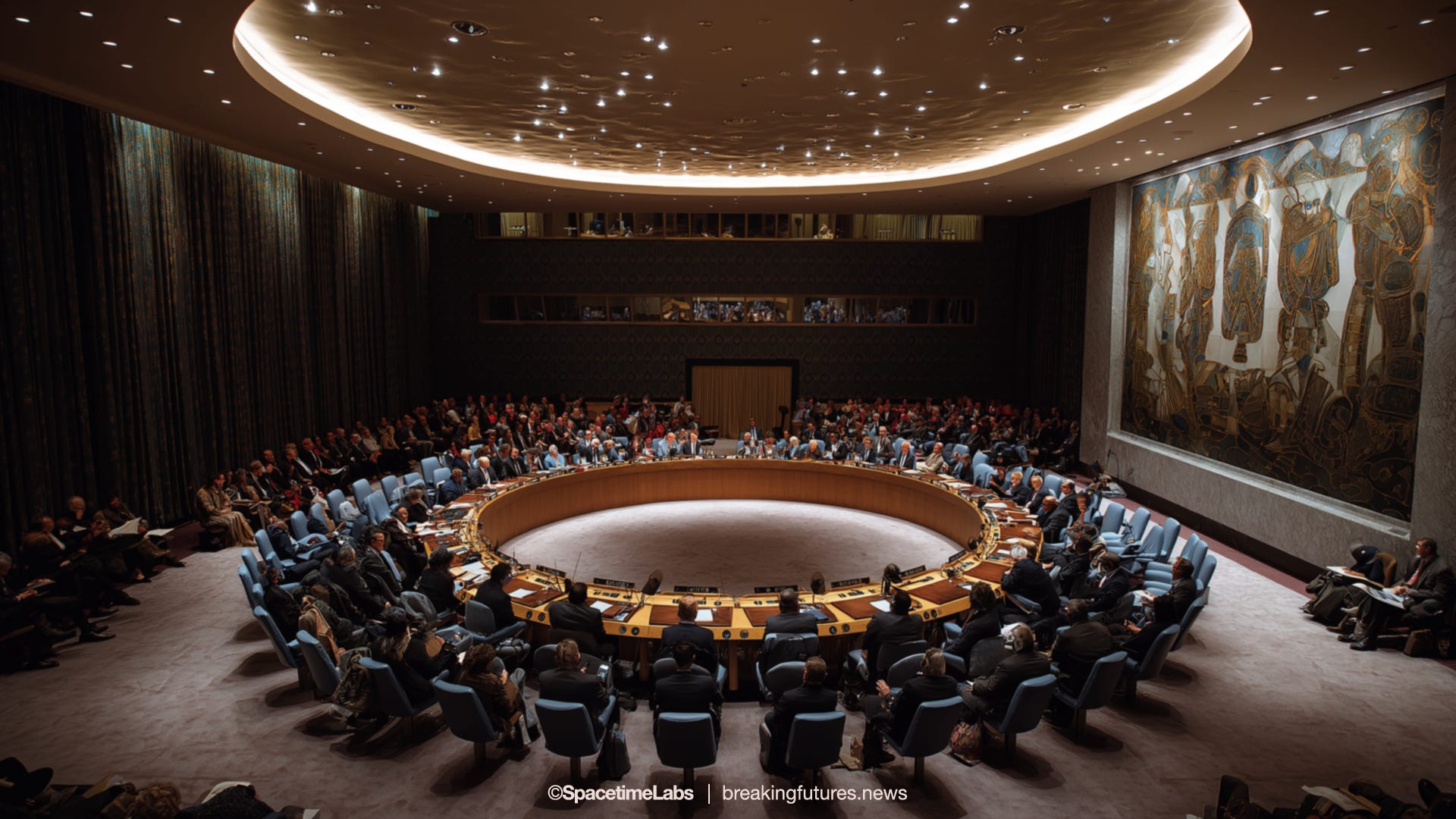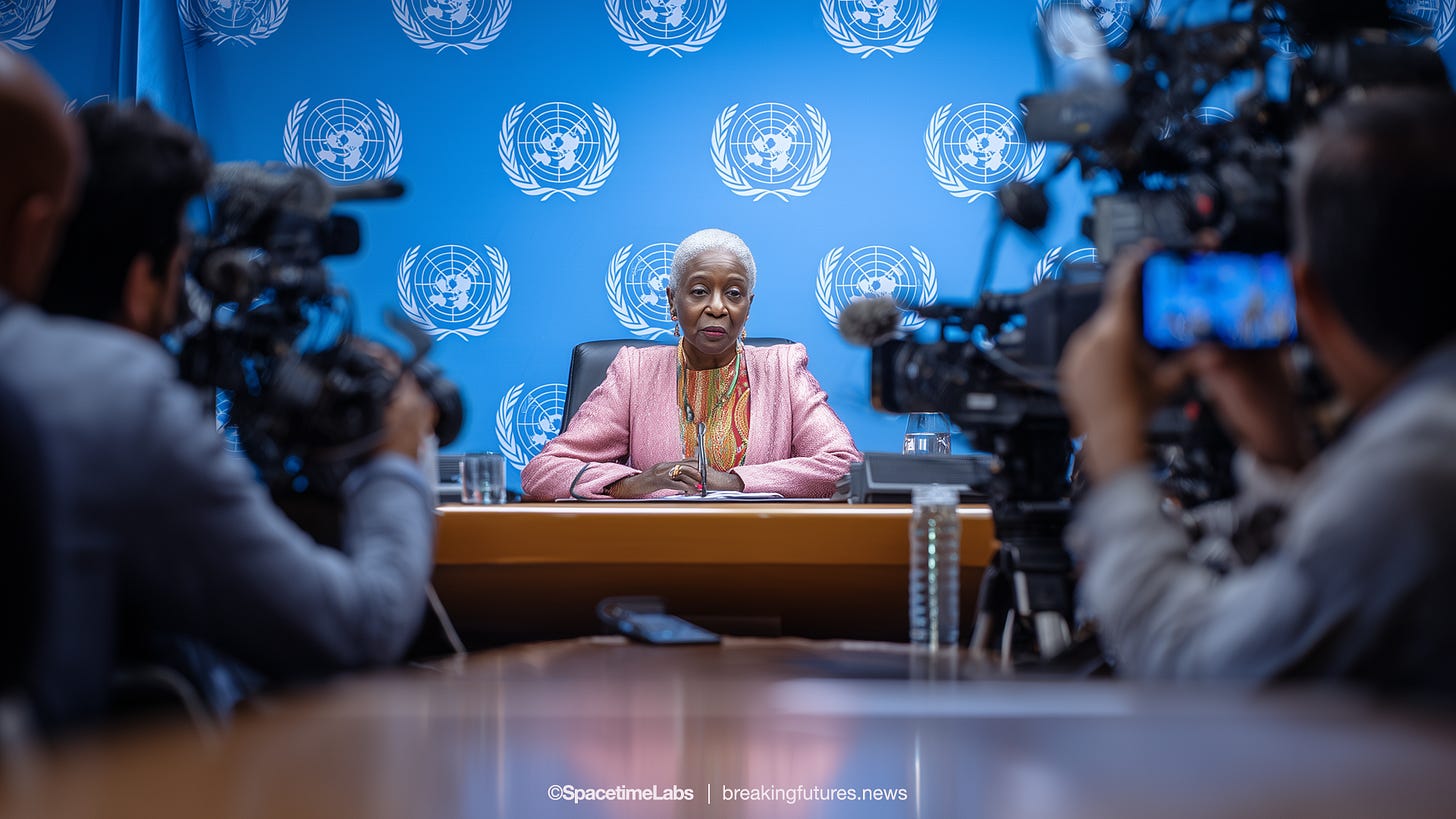Breaking Future: U.N. Security Council Approves First Global Treaty on AI Ethics
May 12, 2032 – Historic agreement establishes unprecedented protections for human rights in the age of intelligent machines.
New York, United Nations Headquarters — In a decision hailed as “the most important international agreement since the Universal Declaration of Human Rights,” the UN Security Council today unanimously approved a groundbreaking Global Treaty on AI Ethics. The treaty sets legally binding standards for the development, deployment, and governance of artificial intelligence, ensuring the protection of human rights in an era where intelligent machines shape daily life.
The treaty, signed by all 193 member states, establishes strict prohibitions on autonomous weapons, mandates transparency in algorithmic decision-making, and requires global oversight of artificial general intelligence (AGI) systems. It also guarantees the right of every individual to appeal decisions made by AI—a measure celebrated by human rights advocates as a safeguard against algorithmic injustice.
At its core, the treaty enshrines five guiding principles: human dignity, accountability, transparency, fairness, and sustainability. Human dignity ensures that no AI system can override fundamental rights or freedoms. Accountability demands clear lines of responsibility for decisions made by or with AI. Transparency requires that algorithms be explainable and open to audit. Fairness seeks to eliminate systemic bias and discrimination embedded in data and models. Finally, sustainability mandates that AI development align with climate and environmental goals, recognizing the technology’s growing energy demands.
“This treaty marks a turning point for humanity,” said Secretary-General Amara Diallo in her address to the chamber. “For the first time, nations have agreed that technology must serve humanity—not the other way around. AI must enhance freedom, dignity, and justice, not undermine them.”
The negotiations, spanning more than a decade, were spurred by growing public concern after a series of high-profile AI failures in the 2020s, including wrongful arrests by predictive policing systems and discriminatory hiring algorithms. The treaty also addresses fears of AI concentration in the hands of a few corporations and governments, requiring transparency, data-sharing, and equitable access to advanced AI tools worldwide.
Global reactions were swift. Civil society groups celebrated the treaty as a victory for democracy in the digital age. Technology companies, while initially cautious, praised the agreement for creating a “level ethical playing field” that clarifies responsibilities and expectations. Critics, however, warned that enforcement may prove challenging, especially as some nations race to develop powerful military-grade AI.
“This isn’t the end of the debate,” said Dr. Helena Kim, an AI ethicist at Seoul National University. “But it is the beginning of a new global consensus: that AI must be governed not just by profit or power, but by principles of humanity.”
The Science Behind the Fiction
The story is inspired by ongoing global efforts to establish ethical frameworks for AI. Today, UNESCO has already published AI ethics recommendations, and the European Union’s AI Act (expected to take effect in 2026) represents the world’s first comprehensive regulatory framework for AI. Researchers and policymakers worldwide are calling for stronger governance of AI, especially as systems approach levels of autonomy and reasoning that impact human rights, labor, and security.
Links to learn more:
UNESCO - Ethics of Artificial Intelligence
European Commission – European Approach to Artificial Intelligence
Stanford HAI – The Case for International AI Governance




